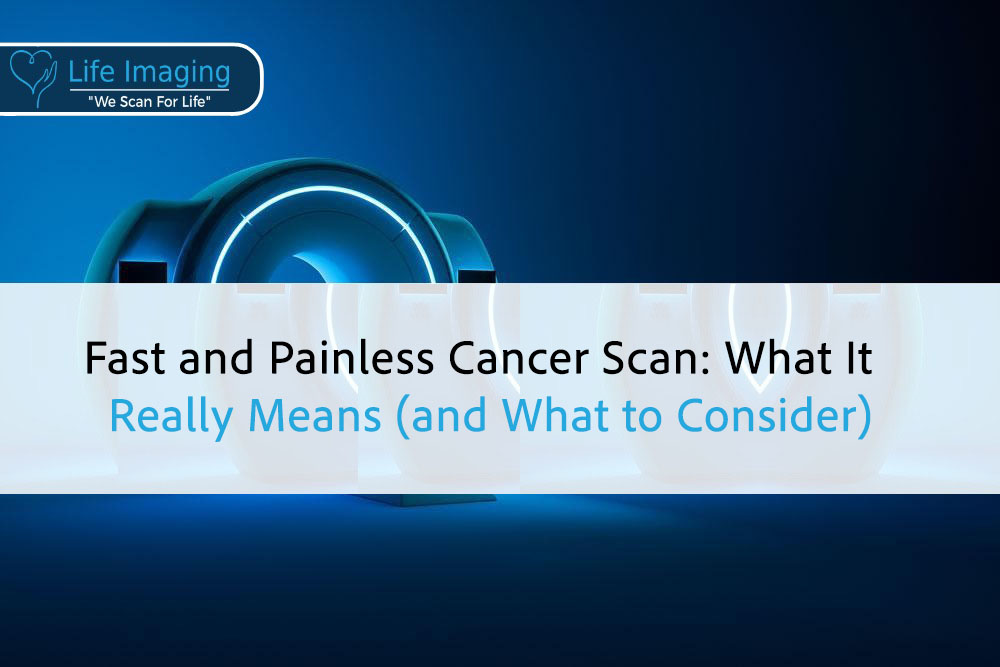
Fast and Painless Cancer Scan: What It Really Means (and What to Consider)
Fast and Painless Cancer Scan: What It Really Means (and
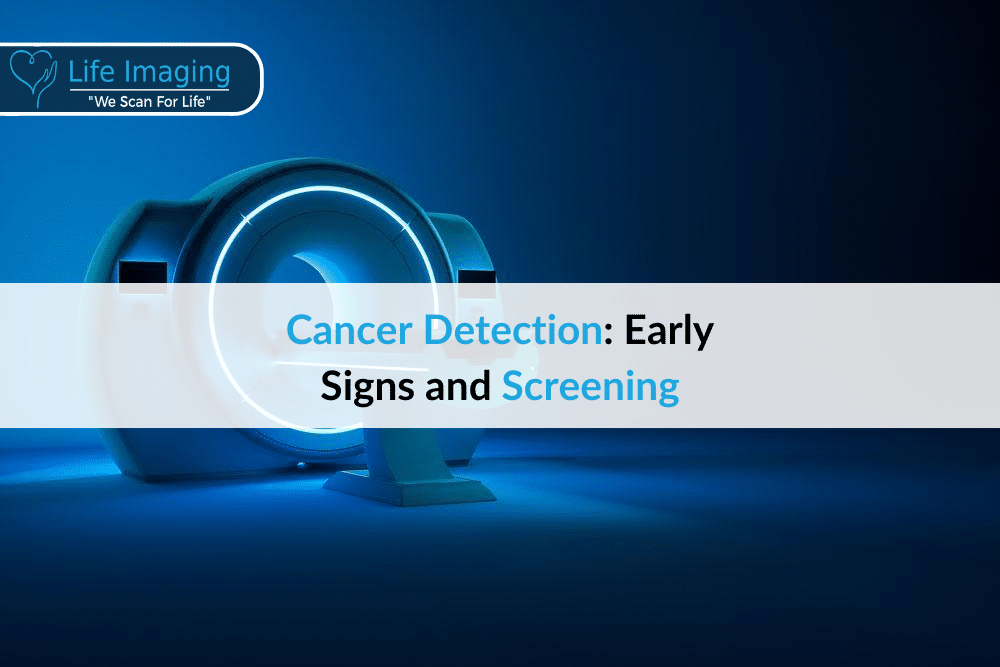
Cancer remains one of the most challenging and pervasive health issues impacting people in Miami and across the globe. Early detection and screening are critical in improving the chances of successful treatment and survival. Catching cancer in its initial stages can make a significant difference in outcomes, making it vital to understand the early signs and utilize available screening methods.
Life Imaging Fla stands at the forefront of cancer detection, dedicated to offering high-quality imaging services for early detection of both heart disease and cancer. Utilizing cutting-edge technology, Life Imaging Fla helps detect cancer at its earliest stages, empowering patients with the knowledge needed to take prompt and effective action.
In this article, we delve into the importance of cancer detection, highlighting the early signs of various cancers and the critical role of screening. Understanding these factors can help individuals in Miami take proactive steps in managing their health. We will explore the most common types of screenings available and provide information on how Life Imaging Fla is equipped to assist with these vital services. Whether you’re looking to stay informed or considering a screening test, this comprehensive guide offers everything you need to know about early cancer detection and screening.
Early cancer detection saves lives. The sooner cancer is found, the better the chances of successful treatment. Many cancers do not show symptoms until they have advanced, making regular screenings essential. Recognizing early signs and symptoms can lead to earlier diagnosis and increased survival rates.
Cancer can spread quickly throughout the body if not detected early. Detecting it in its initial stages often means less aggressive treatment and a higher likelihood of full recovery. Early detection can also reduce healthcare costs and improve the quality of life for patients and their families.
Cancer screenings play a crucial role in finding cancer before symptoms begin. These screenings can identify abnormal cells or tissues that may develop into cancer. Early treatment is often more effective and can prevent the cancer from spreading to other parts of the body.
Recognizing the early signs of cancer can prompt individuals to seek medical advice and undergo necessary screening. Each type of cancer has its own set of symptoms, but some common signs can be observed.
Losing weight without trying can be an early sign of several types of cancer, such as stomach, lung, or pancreatic cancer. If you notice sudden, unexplained weight loss, it is important to discuss this with a healthcare provider.
Feeling tired all the time, even after resting, can be a sign of cancer. Persistent fatigue is often overlooked, but if it lasts for an extended period, it warrants further investigation.
Skin changes, such as new growths, sores that do not heal, or changes in moles, are potential early signs of skin cancer. Monitoring your skin for any unusual changes and reporting them to a healthcare provider is important for early detection.
Chronic pain that doesn’t seem to go away can sometimes be a sign of cancer. For example, a persistent headache could indicate brain cancer, while ongoing back pain might suggest cancer of the spine or kidneys.
Noticing a lump or swelling anywhere on your body, such as in the breast, testicles, or lymph nodes, should raise concern. Even if the lump is not painful, it’s important to have it checked by a healthcare provider.
Screening tests are essential tools in finding cancer early. Various tests are available depending on the type of cancer being targeted. In Miami, these screenings are accessible to the public and are often facilitated by advanced imaging centers.
Mammograms are specialized X-rays used to detect breast cancer. Women over the age of 40 are generally encouraged to have annual mammograms. This screening can identify lumps or abnormalities in breast tissue before they can be felt.
A colonoscopy is a test used to detect colorectal cancer. During this procedure, a doctor examines the colon with a camera. Adults aged 50 and up are generally advised to have a colonoscopy every 10 years, though those with higher risks may need it earlier or more often.
A low-dose CT scan is used to detect lung cancer, especially in individuals with a history of heavy smoking. This test can find small nodules or other changes in the lungs that might indicate cancer.
Pap smears and HPV tests are used to detect cervical cancer. These screenings are recommended for women starting at age 21. Regular Pap smears can help catch abnormal cell changes before they develop into cancer.
The PSA blood test measures the prostate-specific antigen levels in the blood and can indicate prostate cancer. Men over 50 are usually recommended to discuss PSA testing with their healthcare provider, especially if they have a family history of prostate cancer.
Advanced imaging technologies have revolutionized the way cancer is detected and monitored. These techniques provide detailed images of the inside of the body, allowing for early detection of cancerous growths and more accurate diagnoses.
Advanced imaging techniques, such as CT scans, MRIs, and PET scans, offer highly detailed images that can identify even the smallest abnormalities. This precision helps doctors diagnose cancer at an earlier stage, when it’s more treatable.
Many advanced imaging methods are non-invasive, meaning they don’t require surgery or other invasive methods to obtain images. This makes the process more comfortable for patients and reduces the risks associated with invasive procedures.
Imaging can also help detect if cancer has spread to other parts of the body. Early detection of metastasis allows for quicker and more targeted treatment, improving the chances of managing the disease effectively.
Knowing when to seek screening is vital for effective early cancer detection. Understanding your risk factors and staying informed about recommended screening timelines can guide you in making these important decisions.
Certain factors can increase your risk of developing cancer, including family history, age, lifestyle habits, and environmental exposures. Understanding these risks helps you determine when to seek screening. For example, individuals with a family history of a particular type of cancer may need to begin screening at an earlier age.
Various health organizations provide guidelines on when to begin screening for different types of cancer. Following these guidelines helps in timely detection. For example, regular mammograms starting at age 40 can help in early detection of breast cancer.
Be aware of changes in your health or any persistent symptoms. If you experience any concerning signs, such as unexplained weight loss, persistent fatigue, or unusual lumps, seek medical advice. Early screening can determine if these symptoms are related to cancer or other health issues.
Your lifestyle choices can influence your risk of developing cancer. By making healthy choices, you can lower your risk and promote overall well-being.
Eating a balanced diet rich in fruits, vegetables, whole grains, and lean proteins supports good health and reduces cancer risk. Avoiding processed foods, sugary drinks, and red meats can also lower the risk of certain cancers.
Staying active supports your overall health and reduces the risk of cancer. Regular exercise helps maintain a healthy weight, which is crucial since obesity is a known risk factor for various cancers. Aim for at least 30 minutes of physical activity most days of the week.
Tobacco use is a major risk factor for many types of cancer. Avoiding smoking or quitting if you currently smoke reduces your risk significantly. Limiting alcohol consumption is also important, as excessive drinking is linked to several cancers, including liver, breast, and throat cancer.
Excessive sun exposure increases the risk of skin cancer. Protect your skin by using sunscreen, wearing protective clothing, and avoiding tanning beds. Regularly check your skin for any changes and seek medical advice if you notice unusual moles or growths.
Taking advantage of support systems and resources available in Miami can help you stay informed and proactive in cancer prevention and detection.
Various organizations in Miami offer community health programs focused on cancer awareness and prevention. These programs provide valuable education and resources to help individuals make informed decisions regarding their health. Joining these programs can provide support and important information about screening options.
Support groups offer emotional support and practical advice for dealing with cancer. Being part of a support group can help reduce the emotional burden of cancer and provide shared experiences and coping strategies. Many groups focus on specific types of cancer, providing tailored support.
Regular health check-ups are vital for early cancer detection. These visits allow healthcare providers to monitor your health, identify potential issues, and recommend appropriate screenings.
During a routine physical exam, your healthcare provider will assess your overall health. This may include checking your blood pressure, weight, and general physical condition. These exams can help identify signs that may indicate cancer, prompting further testing if necessary.
Healthcare providers can recommend cancer screenings based on your age, gender, and risk factors. They can guide you on when to begin screenings and how often to have them. Regular check-ups ensure you stay on track with these recommendations, enhancing early detection efforts.
Consistent health check-ups allow healthcare providers to track any changes in your health over time. This ongoing monitoring is key to spotting early signs of cancer. If any changes are detected, your provider can act quickly to determine if further investigation is needed.
Family history plays a significant role in determining your cancer risk. Understanding your family medical history can help you and your healthcare provider make informed decisions about cancer screening and prevention.
Certain types of cancer, such as breast, ovarian, and colorectal cancers, can run in families. Genetic factors may increase your risk of developing these cancers. Discussing your family history with your healthcare provider helps identify any genetic concerns.
If your family history suggests a high risk of cancer, genetic testing may be recommended. These tests can identify specific gene mutations linked to an increased risk of cancer. Knowing your genetic status allows for more personalized screening and prevention strategies.
If you have a strong family history of cancer, starting screenings earlier than the general population might be advisable. For example, individuals with a family history of colorectal cancer may need to begin colonoscopies before the age of 50. Working with your healthcare provider ensures a tailored screening plan.
Making positive lifestyle changes can significantly reduce your risk of developing cancer. Simple modifications in your daily habits can contribute to better health and lower cancer risk.
Eating a balanced diet rich in fruits, vegetables, and whole grains supports overall health and reduces cancer risk. Antioxidants and other nutrients found in these foods help protect cells from damage. Avoid processed foods and limit red meat intake to lower cancer risk.
Regular exercise helps maintain a healthy weight, lowers blood pressure, and promotes overall well-being. Aim for at least 150 minutes of moderate exercise per week. Activities such as walking, swimming, and cycling are beneficial for reducing cancer risk.
Exposure to harmful substances such as tobacco, excessive alcohol, and radiation increases cancer risk. Avoiding smoking, limiting alcohol consumption, and using sun protection can decrease your chances of developing cancer. Simple changes like these have a substantial impact on your health.
Chronic stress can negatively impact your immune system and overall health, potentially increasing cancer risk. Practicing stress management techniques such as yoga, meditation, and deep breathing can promote relaxation and support a healthy lifestyle.
Environmental factors can influence your risk of developing cancer. Being aware of these factors and taking preventive measures can help safeguard your health.
Exposure to harmful chemicals, such as those found in pesticides, industrial workplaces, and certain household products, can increase cancer risk. Taking precautions such as using protective gear, choosing natural products, and reducing exposure to pollutants can help minimize these risks.
Radiation, whether from medical procedures or environmental sources, can increase cancer risk. Limiting unnecessary exposure to medical radiation, such as frequent X-rays, and avoiding prolonged exposure to environmental radiation, like excessive sunbathing, helps reduce this risk.
Poor air quality, often caused by pollution and toxins, can affect lung health and increase cancer risk. Using air purifiers, avoiding prolonged exposure to traffic fumes, and supporting clean air initiatives can contribute to better air quality and lower cancer risk.
Contaminated water can contain carcinogens and other harmful substances. Using water filters, staying informed about local water quality reports, and advocating for clean water can help protect your health.
Education and awareness play a crucial role in cancer prevention and early detection. Knowing the risks, signs, and available screenings empowers individuals to take charge of their health.
Public health campaigns raise awareness about cancer risks and the importance of early detection. These campaigns provide valuable information on screening guidelines, lifestyle changes, and how to recognize early signs of cancer. Participating in these campaigns helps spread awareness and promote community health.
Various organizations offer educational programs focused on cancer awareness. These programs provide in-depth knowledge about different types of cancer, preventive measures, and the importance of regular screenings. Attending these programs can enhance your understanding and empower you to make informed health decisions.
Community workshops provide hands-on learning experiences and opportunities to ask questions about cancer prevention and detection. These workshops often include expert talks, health screenings, and interactive sessions, making them valuable resources for community members.
Accessing the right healthcare services in Miami is essential for early cancer detection and ongoing health management. Knowing where to find these services ensures you receive the best care possible.
Choosing a reliable healthcare provider is critical for regular check-ups and cancer screenings. Look for providers experienced in cancer detection and prevention. Building a relationship with a trusted provider ensures continuous and comprehensive care.
Miami is home to several advanced imaging and screening centers equipped with the latest technology for early cancer detection. Researching and selecting a reputable center can provide confidence in the quality of care and accuracy of screenings.
Understanding your insurance coverage for cancer screenings can help you plan and manage healthcare costs. Many insurance plans cover recommended screenings, but it’s essential to verify the specifics with your provider. Knowing what is covered ensures you receive necessary screenings without unexpected financial burdens.
Miami offers various community resources, such as health fairs, free screening events, and support groups. Taking advantage of these resources can provide additional support and access to necessary health services.
Taking a proactive approach to your health is the best way to stay ahead of cancer. By integrating regular screenings, making lifestyle changes, and staying informed, you can take control of your health and reduce your cancer risk.
Keep yourself updated with the latest information on cancer prevention and screening guidelines. Staying informed helps you make educated decisions about your health.
Adhering to recommended screening schedules is essential for early detection. Regular screenings can catch cancer in its early stages when it’s most treatable.
Incorporating healthy habits into your daily life supports overall well-being and lowers cancer risk. Simple changes like eating well, exercising, and avoiding harmful substances make a significant difference.
Take advantage of the healthcare services and resources available in Miami to support your health journey. Engaging with community programs, educational workshops, and reliable healthcare providers ensures comprehensive care and support.
Engaging your family and community in your health journey can provide additional support and encouragement. Involving loved ones and participating in community initiatives fosters a collective effort toward better health and cancer prevention.
Discussing health and regular screening with family members can create a supportive environment for maintaining health practices. Encouraging family participation in healthy lifestyle choices strengthens collective efforts to reduce cancer risk.
Participating in community health initiatives raises awareness and promotes collective action for cancer prevention. Community involvement provides additional resources, support, and motivation for maintaining healthy habits and staying proactive in cancer detection efforts.
By understanding the importance of early cancer detection, recognizing early signs, and utilizing available screening methods, individuals in Miami can take proactive steps in managing their health. Embracing a healthy lifestyle and staying informed about cancer risks and prevention strategies enhances overall well-being and reduces cancer risk. Together, we can foster a community dedicated to early detection, prevention, and better health outcomes.
Modern technology has made cancer detection more accurate and less invasive. New advancements in imaging and diagnostics are helping catch cancer early. Understanding these technologies can help you make informed decisions about screenings.
Artificial Intelligence (AI) is now used in some cancer screenings. AI algorithms can analyze medical images, like mammograms, to identify abnormalities that may suggest cancer. These algorithms can detect patterns that might be missed by the human eye, making screenings more precise.
Molecular imaging is a technique that highlights molecular activity within the body. This method helps detect cancer at the cellular level. Techniques like Positron Emission Tomography (PET) scans can show metabolic activity in tissues, indicating the presence of cancer cells.
Liquid biopsy is an emerging non-invasive test that detects cancer through a simple blood sample. This method looks for cancer-related genetic material or proteins in the blood. Liquid biopsies can provide insights into the presence and type of cancer, even before other symptoms appear.
3D imaging technologies, including 3D mammography, create detailed images of the body. These images help identify tumors and other abnormalities more clearly. 3D mammograms, for example, capture multiple layers of breast tissue, making it easier to spot small cancers.
There are many types of cancer screenings tailored to detect specific cancers. Knowing the different tests can help you choose the right ones based on your risk factors and family history.
Breast cancer screening mainly involves mammograms and clinical breast exams. Mammograms are X-rays of the breast that can reveal tumors too small to be felt. Clinical breast exams involve a healthcare provider checking for any lumps or changes.
Cervical cancer screening includes Pap smears and HPV tests. The Pap smear identifies abnormal cells in the cervix that could develop into cancer. The HPV test detects high-risk types of human papillomavirus, which can cause cervical cancer.
Colorectal cancer can be detected through tests like colonoscopies, stool tests, and sigmoidoscopies. A colonoscopy allows a doctor to examine the entire colon for polyps or growths. Stool tests check for blood or cancer markers in your stool.
Lung cancer screening is typically done with low-dose CT scans for high-risk individuals, such as heavy smokers. These scans create detailed images of the lungs and can detect small nodules or other signs of cancer.
Healthcare providers play a key role in early cancer detection. They guide patients through the screening process, interpret results, and provide necessary follow-up care.
Primary care physicians (PCPs) are often the first point of contact for patients. They perform routine physical exams, assess risk factors, and refer patients to specialists for screening tests. Regular visits to your PCP can help catch potential health issues early.
Oncologists specialize in diagnosing and treating cancer. If a screening test indicates cancer, an oncologist will conduct further tests to confirm the diagnosis. They will also develop a treatment plan tailored to the patient’s type and stage of cancer.
Radiologists are experts in medical imaging. They interpret images from mammograms, CT scans, MRIs, and other screening tests. Radiologists provide detailed reports that help guide diagnosis and treatment decisions.
Genetic counselors help assess your risk of hereditary cancers. They can recommend genetic testing if you have a strong family history of cancer. Genetic counselors also help you understand test results and what they mean for your health.
Many people face obstacles that prevent them from getting screened. Identifying and addressing these barriers can increase early cancer detection rates.
Lack of access to healthcare is a significant barrier. People without insurance or with limited access to medical facilities may skip screenings. Community health programs and free screening events help make healthcare accessible to more people.
The cost of screening can be a concern for many. However, many insurance plans cover recommended screenings, and financial assistance programs are available for those who qualify. Discussing cost concerns with your healthcare provider can help you find affordable options.
Fear of diagnosis or discomfort with screening procedures can deter people from getting tested. Education and support can help alleviate these fears. Understanding the importance of early detection and what to expect during screenings can make the process less daunting.
Cultural beliefs and language differences can also hinder cancer screening. Providing culturally sensitive care and offering translations can help bridge these gaps. Community outreach programs can play a crucial role in educating diverse populations about the importance of screenings.
There are many myths and misconceptions about cancer screening that can lead to confusion. Clearing up these misunderstandings is important for encouraging screenings.
While cancer risk increases with age, younger people can also benefit from screenings. Some cancers, like cervical cancer, can affect younger individuals. Following screening guidelines based on age and risk factors is essential for early detection.
Cancer can be present without noticeable symptoms, especially in its early stages. Screening tests can detect cancer before symptoms appear, making treatment more effective.
Many modern screening tests are designed to be minimally invasive and cause little discomfort. For instance, a Mammogram might cause slight pressure but is quick and generally well-tolerated.
While a family history of cancer may increase your risk, lifestyle changes and regular screenings can help manage that risk. Genetic counseling and testing can also provide valuable insights and guide preventive measures.
Miami offers various community resources and support services to help individuals navigate cancer screening and care. Knowing where to find support can make the screening process smoother and less stressful.
Local health departments often provide information on cancer screenings and preventive health services. They may offer free or low-cost screenings and educational materials to help residents stay informed about their health.
Many non-profit organizations in Miami focus on cancer awareness, prevention, and support. These organizations offer educational programs, support groups, and financial assistance for screening and treatment. Examples include cancer societies and community health initiatives.
Support groups provide emotional support and practical advice from others who have gone through similar experiences. These groups can offer companionship, understanding, and encouragement, which are invaluable during the cancer screening process.
Mobile screening units travel to different neighborhoods, making it easier for people to access cancer screenings. These units provide various tests, including mammograms and Pap smears, bringing essential services directly to the community.
Making informed decisions about cancer screening involves understanding your options and consulting trusted healthcare providers. This ensures that the choices you make are tailored to your specific needs and risks.
Discuss your health history, family history, and concerns with your healthcare provider. They can recommend the most appropriate screenings based on your individual risk factors and guide you through the process.
Screening guidelines can change based on new research and recommendations from health organizations. Stay informed about the latest guidelines to ensure you receive timely and relevant screenings.
Your comfort and preferences matter when making screening decisions. Discuss any concerns or preferences with your healthcare provider, who can help you find the most suitable and least invasive screening methods.
Empowering yourself with knowledge about cancer screening and early detection helps you take control of your health. Stay informed, make educated choices, and advocate for your health and well-being.
Take advantage of educational resources available through healthcare providers, libraries, and reputable websites. Educational materials can provide in-depth information about the different types of cancers and screening options.
Participating in community workshops and seminars on cancer awareness offers valuable insights and the chance to ask questions. These events also provide opportunities to connect with experts and others interested in learning about cancer prevention.
Being proactive about your health means taking steps to reduce your cancer risk and opting for regular screenings. Simple actions, like scheduling routine check-ups and leading a healthy lifestyle, can make a significant difference in cancer prevention and early detection.
Miami residents have access to a wealth of resources and advanced technologies for cancer detection and screening. Understanding the importance of early detection, staying informed about available screenings, and making healthy lifestyle choices empower individuals to take charge of their health. Continuously learning and participating in community resources foster a proactive and well-informed approach to cancer prevention and early detection.
Early detection can make a significant difference in the outcome of cancer treatment. By taking advantage of advanced screening technologies and understanding the importance of regular check-ups, you can significantly improve your chances of catching cancer early. Knowledge, proactive health management, and community resources all contribute to better health outcomes.
At Life Imaging Fla, we offer cutting-edge imaging technologies designed to provide precise and timely cancer screenings. Our expert team is committed to guiding you through the screening process and helping you understand your results. We focus on your comfort and provide personalized care to ensure a smooth and informative experience.
Don’t let fear or uncertainty delay essential screenings. Reach out to us to schedule your next screening and take a proactive step toward a healthier future. By staying informed and utilizing advanced technologies, you empower yourself to take charge of your health.
Take the most crucial step today. Contact Life Imaging Fla to schedule your comprehensive cancer screening and secure peace of mind. Our experienced team is here to support you every step of the way. Together, we can work towards early detection and a healthier future.

Fast and Painless Cancer Scan: What It Really Means (and
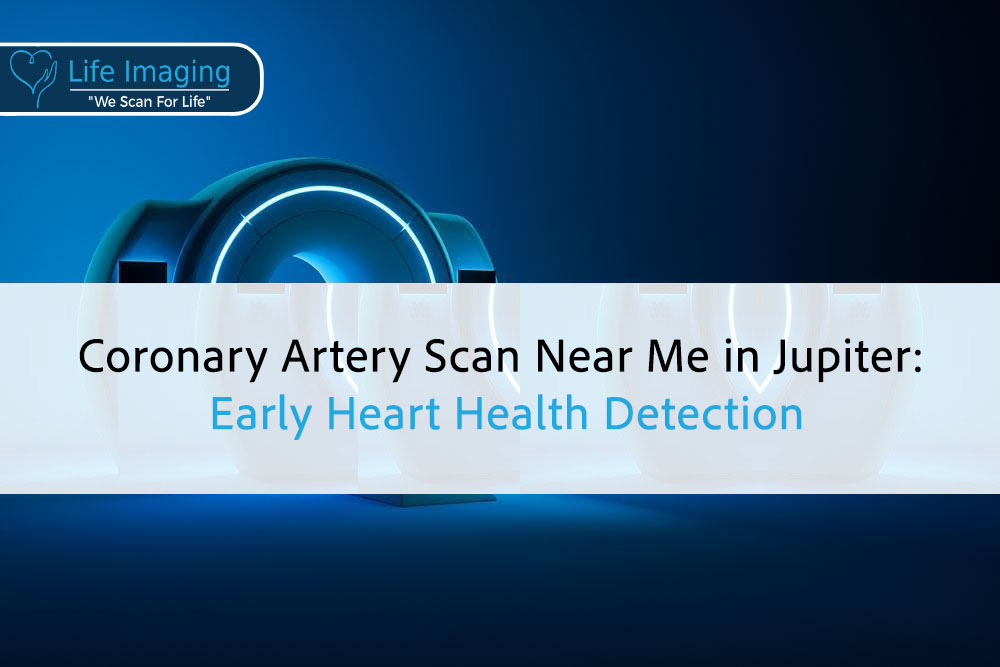
Introduction Your heart works hard every second of the day,
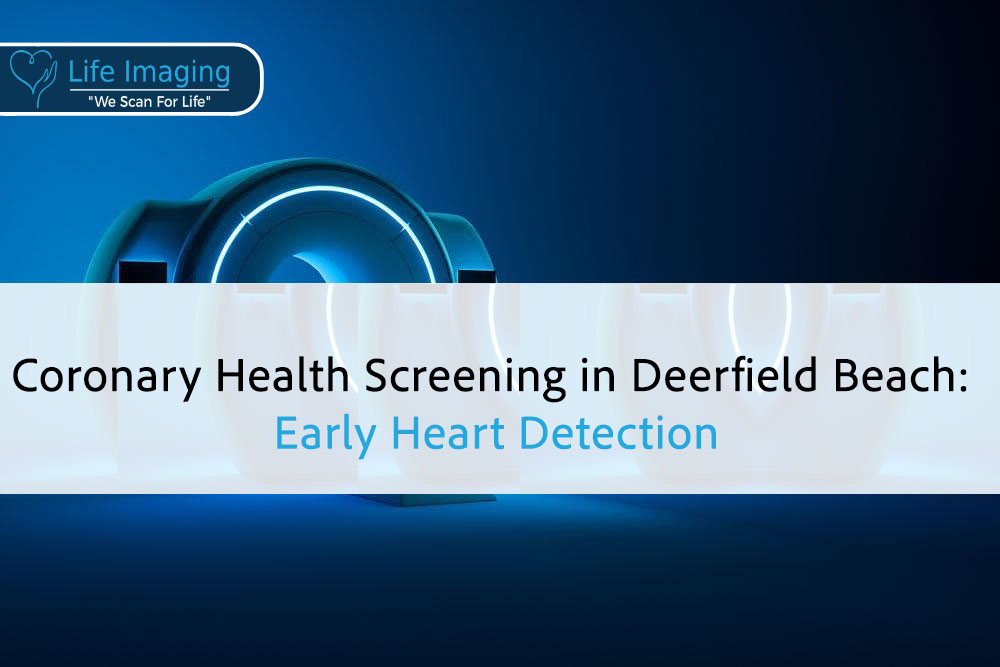
Introduction Your heart works around the clock, but changes inside
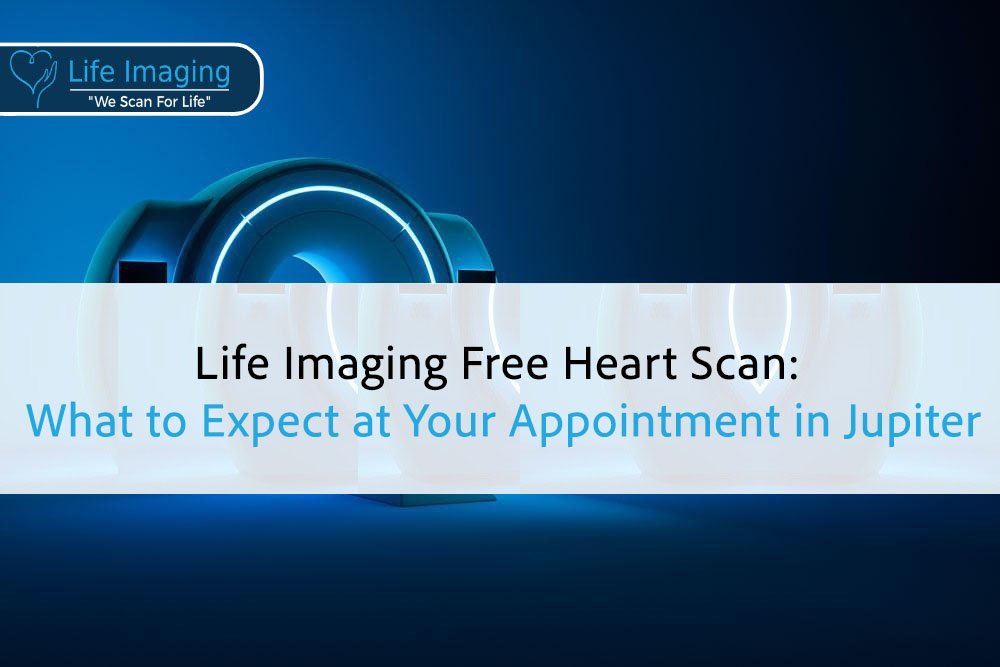
Introduction Your heart works nonstop, often without a single complaint.
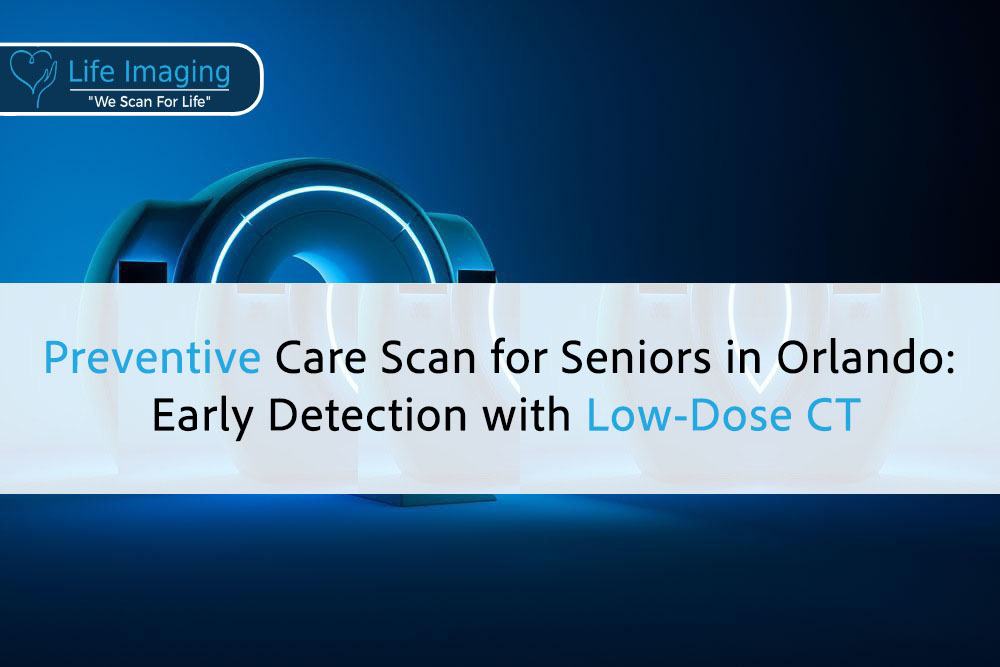
Introduction The best part of getting older is having time
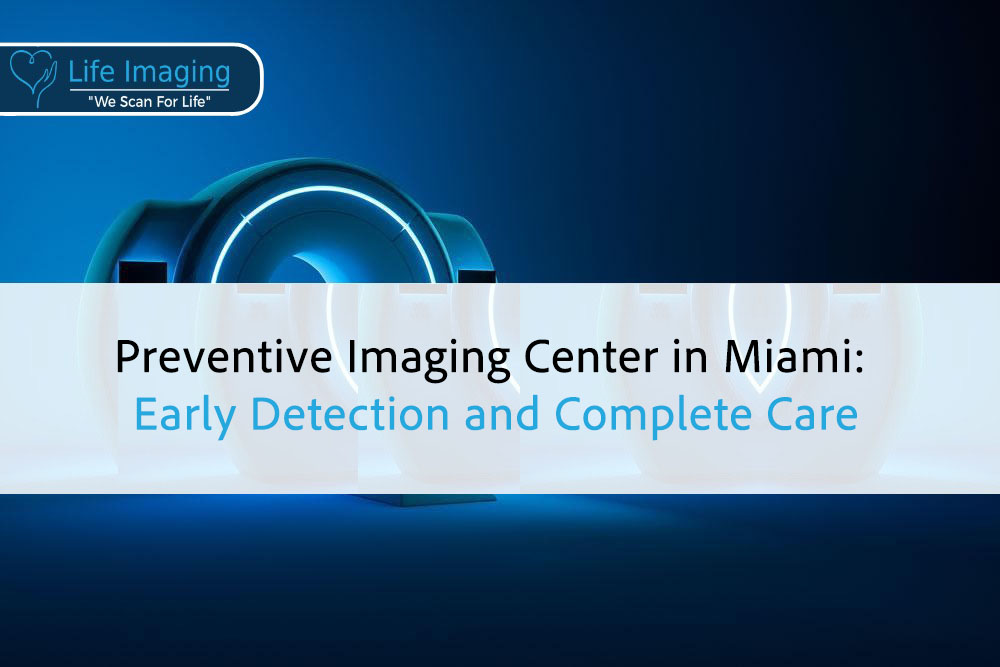
Introduction Good health isn’t just about treating problems, it’s about

* Get your free heart scan by confirming a few minimum requirements.
Our team will verify that you qualify before your scan is booked.
Copyright © 2025 Life Imaging – All Rights Reserved